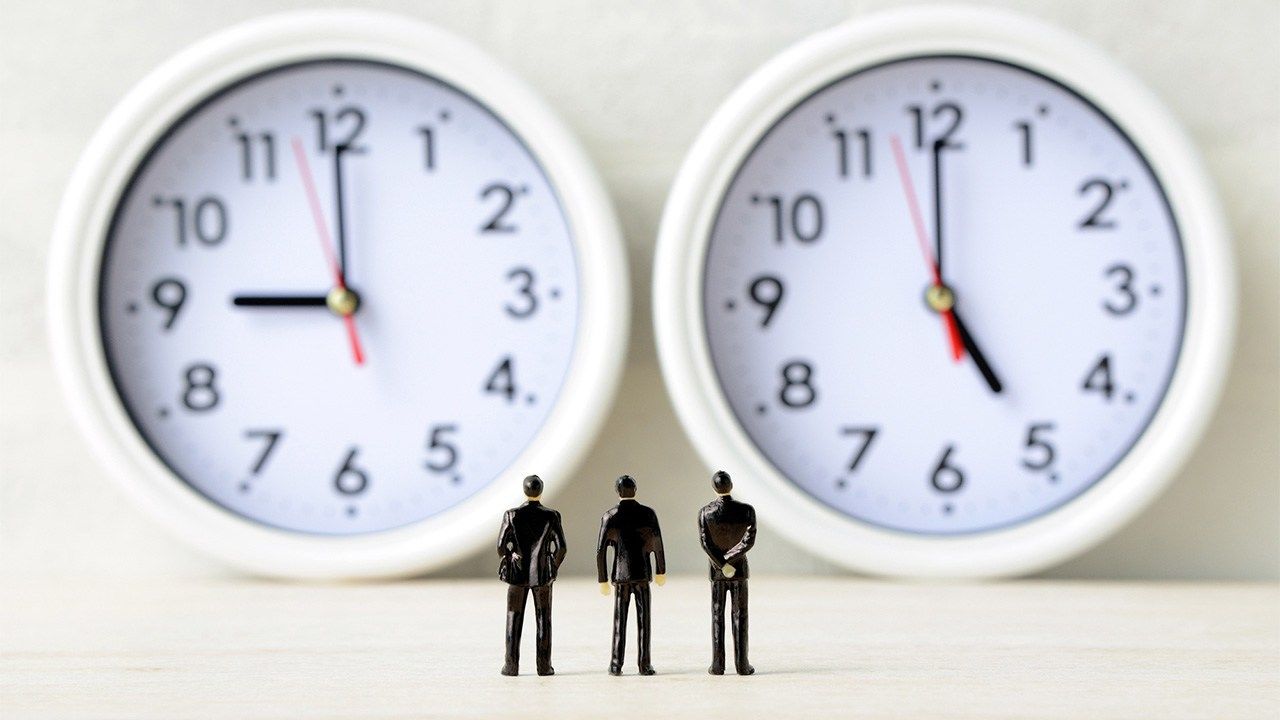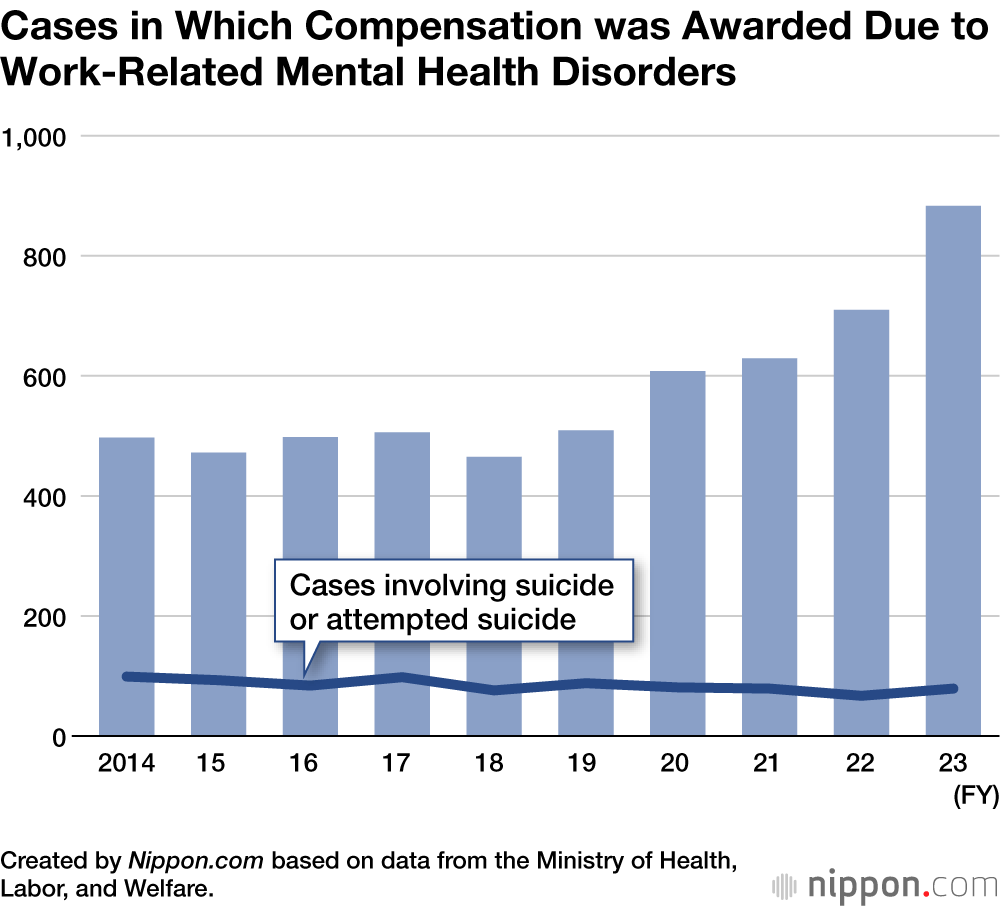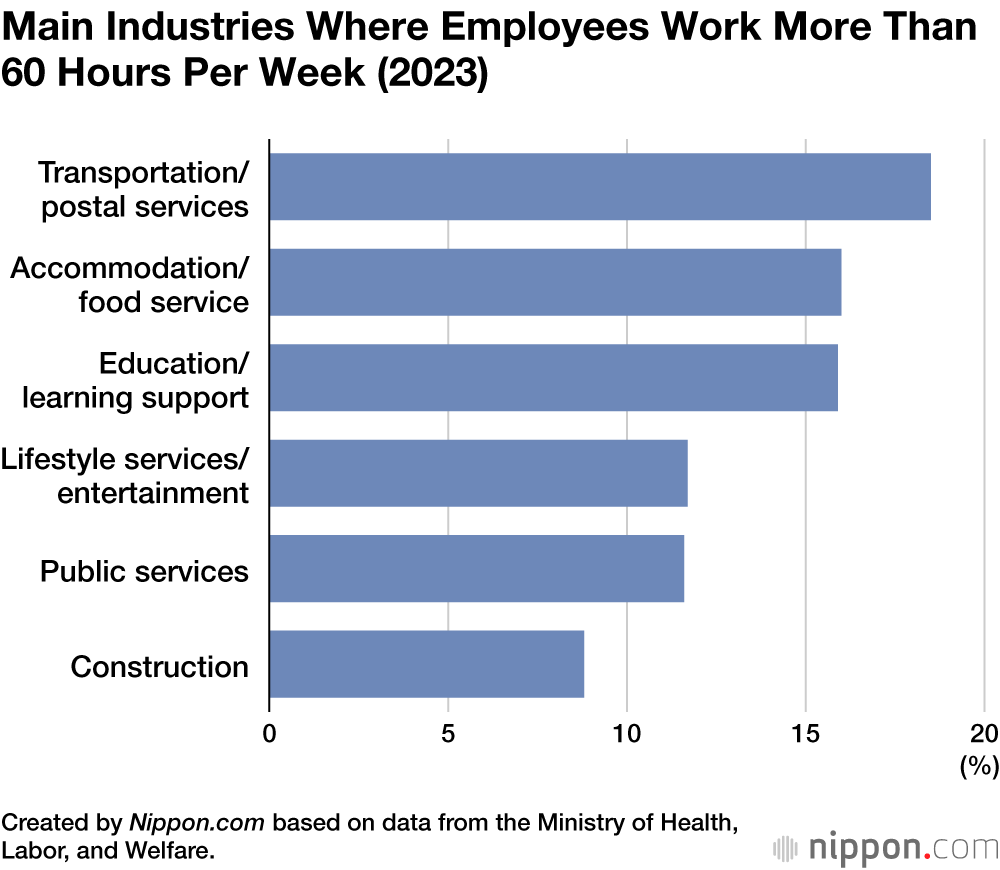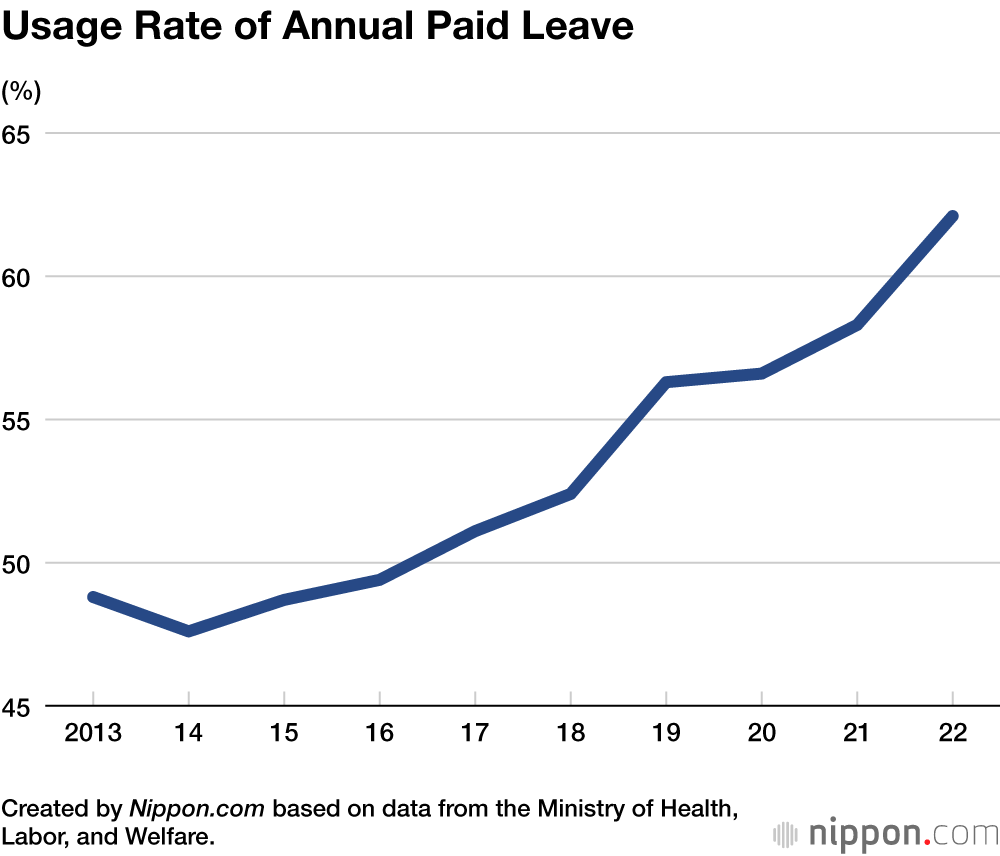
White Paper on Overwork in Japan Shows Record Rise in Recognized Work-Related Mental Health Issues
Society Work- English
- 日本語
- 简体字
- 繁體字
- Français
- Español
- العربية
- Русский
According to a 2024 white paper on measures to prevent karōshi (death by overwork), 883 people were recognized as suffering from mental health disorders due to overwork. This was up 173 from the previous year, marking the highest number on record. Among those cases, 79 involved suicides and attempted suicides. The number of people recognized as having suffered work-related brain or heart conditions was 216, exceeding 200 for the first time in four years.
In 2023, the total annual number of working hours per worker was 1,636, an increase of 3 hours compared to the previous year. Back in the 1990s, that number stood at roughly 1,900, and while annual working hours have fallen since then, they have recently leveled off.
In the case of full-time workers, the total average actual working hours was 1,962, staying below 2,000 for the fifth year running. For part-time workers, it totaled 952 hours, the fifth consecutive year the number remained below 1,000.
Among employees working more than 40 hours a week, 8.4% had a lot of overtime, working more than 60 hours a week. This was a drop of 0.5 percentage points year-on-year. At 18.5%, the industry with the highest rate for working over 60 hours was transportation and postal services.
The white paper also looked at the state of annual paid leave, revealing a tendency for a marginal increase in the number of days taken, with an average of 10.9 days recorded in 2022. This was the fourth year in a row that it had been above 10 days. In 2017, the rate of annual paid leave taken exceeded 50% and it rose to 62.1% in 2022, marking a year-on-year increase of 3.8 points.
(Translated from Japanese. Banner photo © Pixta.)



